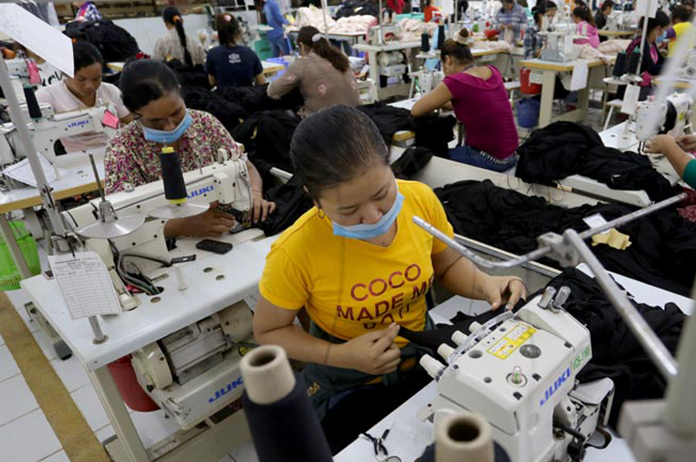ADB Approves $60 Million Loan For Skills Training

Asian Development Bank yesterday approved a $60 million loan to Cambodia to boost labor skills and competitiveness and help the government’s efforts to transit the economy into a skills-driven one.
Cambodia is ranked 110th out of 140 economies in the 2018 Global Competitiveness Report, based on business reporting on the difficulty of finding highly skilled employees to fill technical roles. The country’s technical and vocational education and training (TVET) programs are not meeting the needs of the current labour market, with most diploma programs focusing on jobs in the service sector.
According to the statement from ADB, the loan aims to help Cambodia diversify and modernize the country’s industrial sector by upgrading the facilities and equipment of selected technical training institutes (TTIs) around the country; improving the curriculum and skills of TTI trainers; and forging stronger ties with the government and business community to meet the needs of the labour market.
ADB education specialist for Southeast Asia Yumiko Yamakawa said that having a highly skilled labour force is essential for a country like Cambodia, which has a fast-growing economy and an expanding workforce. “The ADB loan will focus on improving the skills of workers employed in high-growth sectors to fuel the country’s development,” she said. “We are also making sure that all stakeholders, especially the government and the private sector, are working together to boost worker skills.”
Pich Sophoan, a secretary of state for the Ministry of Labour and Vocational Training, yesterday said that he did have details about the ADB-funded project and is waiting for information from the Finance Ministry which is managing the loan.
Andrew Tey, director of Cambodian Garment Training Institute, which was created by the Garment Manufacturers Association in Cambodia, told Khmer Times recently that last year the center had trained some 1,794 workers to improve their leadership skills, especially on implementing lean manufacturing and ‘kaizen’ principles to improve the work environment and productivity. “The ‘Sewing operator training programme for apparel and footwear’ will train workers on the soft and technical skills they need before they start work at the factory,” he said. “This programme has been developed in partnership with the government with the aim of upskilling workers and enhancing productivity.”
According to ADB, the Skills for Competitiveness Project will help produce 18,000 qualified technicians, 28 percent of whom are women, who will have higher employability and technical skills in four priority sectors: manufacturing, construction, electricity, and electronics. “This will be done through efforts in five TTIs around Cambodia, including the upgrading of 16 new training facilities with gender-sensitive, inclusive, and energy-saving design features like separate dormitory floors and toilets for women; the provision of advanced and industry-grade training equipment; capacity development training for trainers; and the provision of merit-based stipends to selected students,” ADB said.
The five TTIs identified for the project are the Battambang Institute of Technology, the Institute of Technology of Cambodia, the National Polytechnic Institute of Angkor, the National Technical Training Institute for TVET Park, and the Regional Polytechnic Institute Techo Sen Svay Rieng.
The ADB added that the project will provide upskilling and reskilling opportunities for existing workers to address skills gaps and skills shortage in the industrial sector through work-based learning programs. About 18 work-based lending programs will be implemented in partnership with industry players, which will improve the competencies of about 360 workers.
The pilot skills development fund, an innovative model to increase and incentivize industry investments in skills development in Cambodia, will also be expanded. The project will finance training proposals, to be supported by the fund, which will provide training opportunities for at least 3,500 people, at least 25 percent of them women; develop the capacity of government agencies to strengthen the management of the fund; and provide support for the establishment of a new permanent agency, which will be up and running by 2024.